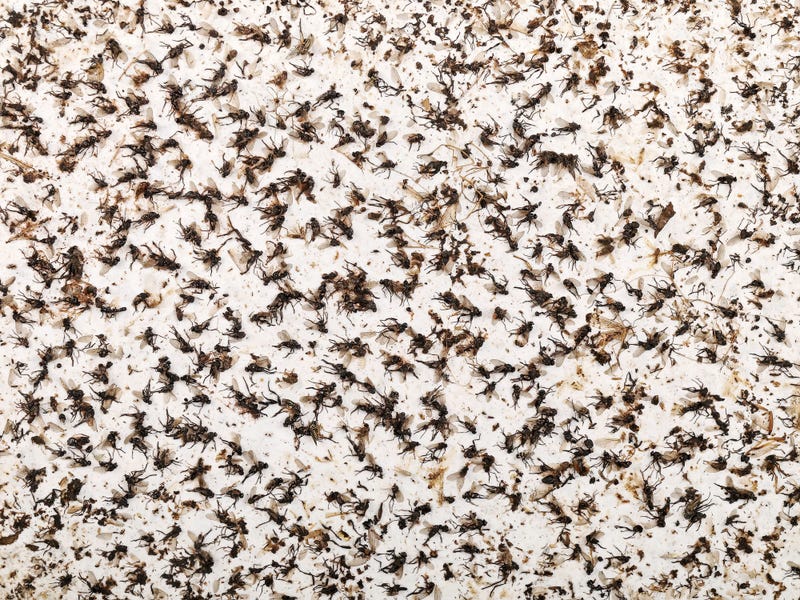
Concerned callers have been reporting huge bug swarms in New Orleans.
Officials say that while the insects resemble mosquitoes, they are not.
"An inspection of the sites where the calls were coming from, namely around the Hayne Boulevard area in New Orleans East, revealed that the swarming insects were in fact non-biting midges," according to a city news release.
New Orleans' Mosquito and Termite Control Board issued a notification after "an unusual amount of phone calls from constituents" today.
Residents reported large numbers of what thought were mosquitoes or termite swarms clinging to the walls of houses, apartments, vehicles and vegetation in New Orleans East.
The release says the midges are a fly that superficially resembles mosquitoes.
"Non-biting midges breed in water just like mosquitoes, but prefer polluted waters that are high in organic material. The larvae grow in the bottom of bodies of water, which may be lakes, ponds, streams, canals or even containers, and are usually red in color and are called bloodworms."
Authorities say the life cycle could take weeks, but once they are mature, they don't live long out of water.
"Because the adults do not feed, they die after only 3 to 5 days."
They plan to just let the swarms die off over a period of "a few days or weeks once the swarms die off."
